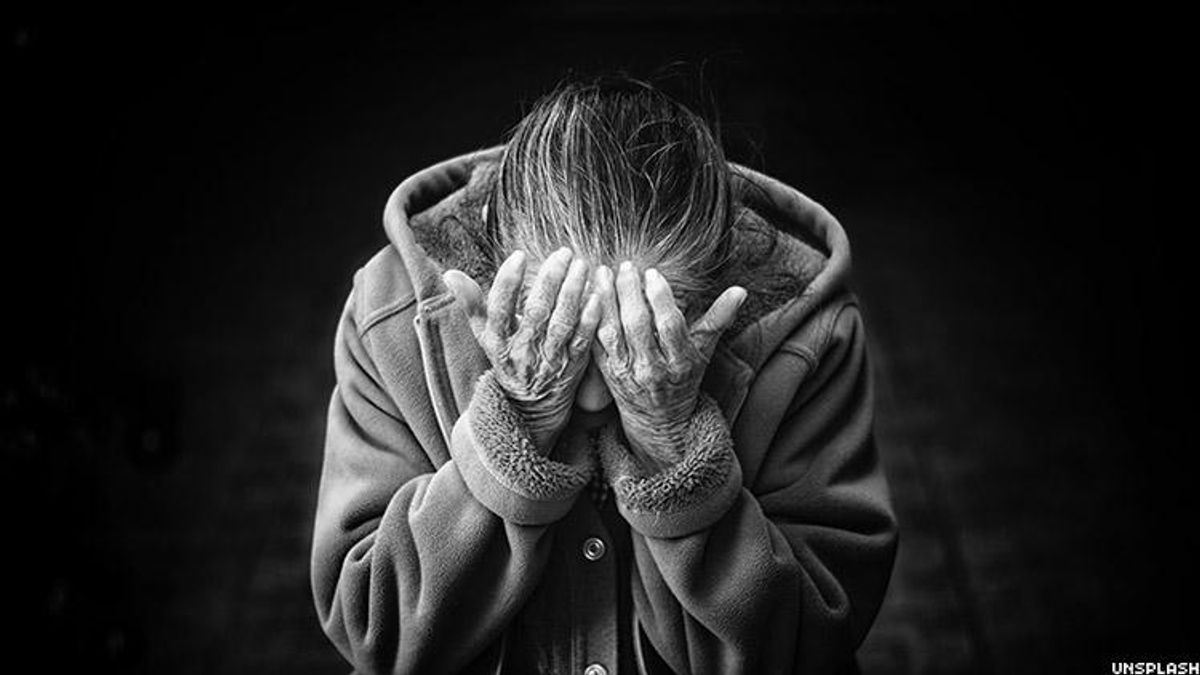Given the heightened risk that older people face of serious illness due to COVID-19 and the particular challenges confronting older LGBTQ Americans, now is a time to remember and address the needs of our elders, notes a new issue brief.
"Having undergone a lifetime of systemic discrimination and in turn poorer health outcomes, older LGBTQ people are especially vulnerable," says the brief, released today by the Human Rights Campaign Foundation and SAGE: Advocacy and Services for LGBT Elders. There are currently 3 million LGBTQ Americans 50 and older, with over 1.1 million 65 and older.
"This critical new resource is extremely important for LGBTQ older adults, caregivers and community members alike," said Dan Stewart, associate director of the HRC Foundation's Aging Equality Project. "During this time of crisis, we must be protecting all of our community members, including LGBTQ older adults. And we need everyone to step up and do their part to keep each other safe and healthy. HRC was proud to partner with SAGE on creating this resource, and we'll continue to work together to assist and uplift those who are most at risk in our communities."
"With LGBT older people at high risk for COVID-19 infection due to not only their age, but also health disparities and social isolation, it's essential that we arm ourselves with the information we need to protect our community," said SAGE CEO Michael Adams. "To that end, SAGE is pleased to partner with HRC to provide this important resource."
Eighty percent of the deaths in the U.S. from COVID-19 have been among people age 65 and older, according to the Centers for Disease Control and Prevention. Staying home except for essential errands and practicing social distancing when out are important ways to curb the spread of the virus. But many LGBTQ elders are already isolated, and these measures add to that, the SAGE-HRC Foundation document notes.
"Social isolation has a direct impact on the health and well-being of LGBTQ older people," the brief points out, citing a study from the Movement Advancement Project. People in rural areas and those living with HIV are at greater risk for the negative impacts of isolation.
LGBTQ elders may be without the family support that straight and cisgender elders have; they are less likely to be partnered or have children. In an AARP survey of LGBTQ older adults, three-fourths reported they were concerned about having enough support from family and friends as they age. "Without family members as advocates and caregivers, LGBTQ older people may be less likely to get the care they need," according to the HRC Foundation and SAGE.
Older LGBTQ people are also less likely than their straight and cisgender peers to seek out long-term care. In surveys, 60 percent of LGBTQ elders have said they are concerned about discrimination in long-term care, whether residential or in-home, and 40 percent were not comfortable with being out to care providers. African-American and Latinx LGBTQ elders were more concerned than whites about potential discrimination.
But older LGBTQ people are resilient, the brief emphasizes, having lived through such events as the Stonewall rebellion and the AIDS crisis. "The support and actions of the LGBTQ community, allies, health professionals, neighbors and caregivers can continue to ensure the strength of LGBTQ elders," the document notes.
For older LGBTQ adults, the organizations recommend practicing social distancing to maintain health; checking with local businesses to see if they have designated shopping hours for older people; contacting area agencies on aging area about meal delivery and transportation; designate a person to hold medical power of attorney; and, if they need someone to speak to, contact the SAGE Elder Hotline at (877) 360-5428 day or night.
The groups urge caregivers to take precautions when working with older people, including frequent hand-washing; to make sure their clients have legal documents such as a medical power of attorney; to also contact local agencies on aging about services; and, if medical care is needed, to seek out LGBTQ-inclusive providers through HRC's Healthcare Equality Index.
Other community members can help by supporting a local SAGE affiliate or other group for LGBTQ elders; checking in with older members of the LGBTQ community and offering to run errands if possible; listening to LGBTQ elders about their needs; and encouraging long-term care facilities to be inclusive and sign up for the Long-Term Care Equality Index.
Read the full brief here.


















































































Fans thirsting over Chris Colfer's sexy new muscles for Coachella